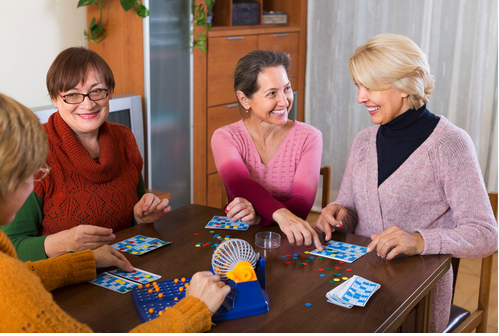|
Happy Mother's Day!!  Hi Friends, Happy Mother's Day to all the moms out there! Most of you know that I am a certified health and life coach. As part of my work, I help busy women (many of them moms and grandmas) dial down feelings of overwhelm and tension that come from giving so much to everything and everybody else. It seems like your to-do list never ends, and many of those tasks revolve around your children and grandchildren. My question you is this: Where are YOU in all this busy-ness? We just love our children so much, don't we? But sometimes, sometimes you may have a hard time backing out of the caretaking role that defined your relationship with your children when they were growing up. Your children will always need your love and attention, but many aspects of your relationship will evolve as they become adults. With Mother's Day upon us, I thought I'd share three general tips to help you recalibrate the relationship between you and your children so that it accurately reflects their adult status. Even as we are sheltering-in-place, when some of you perhaps feel you are not seeing your adult children enough right now, these tips can be valuable to consider in noticing the general pattern you have established when dealing with your children. Bonus: Implementing even one of these suggestions may improve your relationship enough to have them wanting to hang out with you a lot more when the time is right! #1 Time Boundaries: Are you the 'drop everything whenever you are called' Mom? Your own schedule matters. Time is one of the most important elements of your life. It's one of the more valuable commodities over which you actually have a great deal of control. You probably have jam-packed days, and fitting everything in is very often a challenge. You make your list, you have a game plan. but suddenly, one of your kids needs you. Emergencies happen of course, so you are flexible and likely find a way to help them out. Barring that situation, however, you may want to rethink immediately dropping everything and reshuffling your day. What you will probably omit from your list are things that allow you to take care of yourself, or things that reflect your own priorities for the week. My take: it is reasonable to keep those things in tact! By taking care of your own needs, you end up leaving more quality time and energy for them. When you eventually do see your children, it will be like exchanging quantity for quality...by seeing them one less time that week, you will actually be calmer, more enthusiastic, and totally present when you do see them. This is because you are not distracted by your thoughts about the other things you should be doing. Sometimes, the request may be to do something for them, but perhaps you feel you don't have the time. Same thing, keeping your own priorities set will ultimately be beneficial to you, to them and to your relationship overall. Again, the next time you see them, there is no palpable undercurrent of resentment or upset. Bonus: they will learn to manage their own time better. You are setting a good example for your child. They will likely respect your time more, because YOU respect your time more. Wins all the way around. #2 De-personalize: It's not about you. And their moods are not your moods. Your children may feel upset at times, as all of us occasionally do. (Occasionally? Well, let's leave that for another email.) The loving relationship you have with them may allow them to think it's okay to take their upset out on you. You get to decide if how they are behaving toward you in that moment is okay with you. Sometimes it may be, and sometimes it may not be. You are a compassionate and empathetic parent, after all. You know their mood isn't about you. So sometimes you just let it go. But whether their behavior is okay with you or not, remind yourself that you do not have to ride the wave of their emotions with them. So often in my coaching practice I see women who end up experiencing the same emotions that their children are experiencing, even though they did not actually live through said experience themselves. While you love them and feel very connected to them, this kind of extreme empathy is not a necessary by-product of being a good parent. You can listen to their story, and allow them to feel and express whatever they are feeling. (Please don't try to talk them out of it. They know how they feel and they need to own it.) Things will go up and down in their lives, just as they do in yours. You don't need to ride the wave of their emotions with them. Better to listen fully to what they are experiencing, and hear what they are saying without judging them or giving them your expert advice (I know, this is a not easy. I struggle with this one too.) If they ask you how you feel about it, you can certainly discuss it with them honestly. By adopting their misery or anger as your own, however, you are actually helping them stay in their upset. Most often, your well-intended commiseration does not help them move on. In fact, it will usually result in doing the opposite of what you want to do, which is to support them and help them find their own solutions. They are typically better able to figure out what to do next when they step back from the situation. If you listen to them with an open mind and heart, knowing that they will figure out their own next best step, you are truly empowering them to become better agents of their own life. #3 Untether: Have your own life. Enjoy your life. Grow, learn, do. Figure out what you like to do at the current stage of your life. Learn something new. Engage with friends, make more time for your spouse or partner. Date, if you are single. Volunteer. You will like yourself and your life more when you dive in, and you'll be a lot more interesting to be around. Of course, your relationship with your children is not based on how interesting you are, but think of it as bringing balance into your life. The more engaged you are in your own life, the happier you are, and the more likely you are to bring that joy with you to whatever you are doing. Remember, you are your child's first love, their original caretaker, and from day one, their adult role model. Living a life that comes from being your own centered person will encourage them to do the same. And setting the example of a life well lived is always the best gift you can give to your children. These tips are my gift to you to help you create a more empowered, satisfied life as a Mom. This short list of suggestions is by no means all-inclusive, but will help you shift the way you take care of yourself in relation to your adult children. Mothers often get stuck in old patterns of behavior when it comes to their children, and vice versa. This is a reminder that the parent-child relationship must grow and change over time, just as other valuable relationships do. And this growth can enrich both you and your adult children as your lives continue to evolve, physically separate but always together in your hearts. Please take care of yourself, and know that I am here to help you during this time. I am offering free Shelter-In-Place phone calls to discuss helpful coping alternatives as they relate to your specific situation.  As always, if you want to learn more about creating the life you desire by developing healthy habits and mindset, and how you can feel great in your body (without losing your mind), hit reply and send me an email, or call me at (201) 803-3257. I'm also offering a free Discovery Session to discuss your health and life goals and how I can help you. Click here to schedule your free half-hour phone session with no obligation. Let's talk! Please take care and be safe! In Good Health,
0 Comments
Your comment will be posted after it is approved.
Leave a Reply. |





